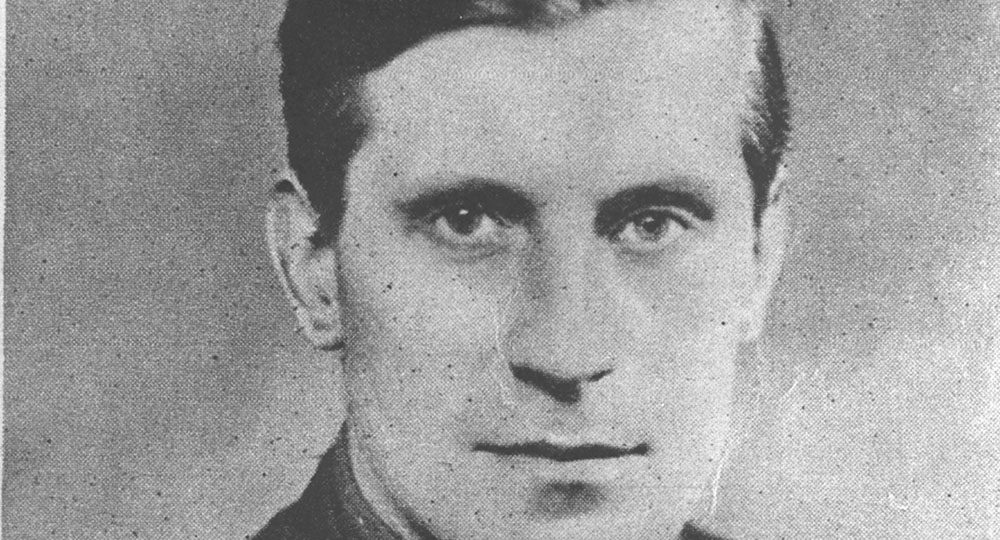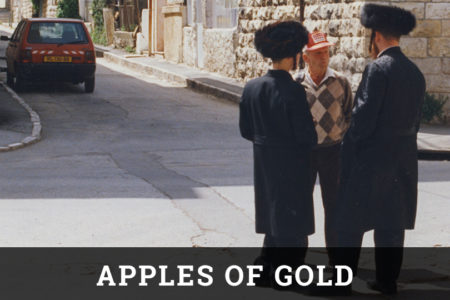Charles Orde Wingate
Friend of Israel
Israel is a nation in need of friends. But, understandably, after centuries of rejection, abandonment, and betrayal, the Jews are somewhat hesitant about whom they call a friend. For Charles Orde Wingate, the bestowal of the affectionate designation “Hayedid” (the Friend) by his Israeli comrades must have been a great honor—and, we might well expect, one not without an accompanying story of outstanding bravery, self-sacrifice, and consistent commitment to the Jewish cause suitably deserving of such a rare distinction.
What, then, did this British soldier, a Gentile, do in the crucial, difficult, dangerous years preceding World War II and the birth of the modern State of Israel? And, perhaps more interestingly, why? An examination of Orde Wingate’s contribution to the history of the modern Jewish state will answer these questions. As we study the life of Wingate, I trust that we will consider our own attitude toward the nation that still desperately needs allies—individuals and nations who are willing to stand up and be counted in the hard times, when it really counts.
The old adage, “The hand that rocks the cradle rules the world,” is not without evidence to support it, and certainly in the case of Orde Wingate it was the influence of his godly mother that formed the basis for his later involvement with the Holy Land and its people. That is not to say that his father’s family was lacking in religious dedication and practice. On the contrary, a heritage of mission involvement (at one time to indigent Jews in Budapest) by his grandfather and then his own father provided a solid foundation and example of practical Christianity. But Orde’s mother is credited with ensuring that great chunks of the Bible, the Old Testament in particular, were committed to memory by the young boy. As his sister once recounted, “She suckled him on the strong milk of the Old Testament and weaned him on the Psalms and Proverbs.”1 Leonard Mosley adds, “ … a love of the Bible grew steadily from his daily readings, until it began to shape the whole course of his life. He would read it aloud to his sister Rachel, and they would reenact scenes together from the Old Testament.”2
Wingate’s enthusiasm for the Old Testament apparently was the basis for his later love for the land of Israel and the cause of Zionism. As his biographer, Christopher Sykes, comments, “His attention was … less moved by the wisdom of the New Testament than by the ecstasy and splendours of the Old.”3
Following a routine British military education, Wingate was posted to the Sudan, where he not only improved the Arabic he had begun to learn following an earlier fascination with things Arabic, but where he also became familiar with the cultural and political aspects of the Arabs. His later assignment to the hot spot of Palestine was in recognition of these Arabic skills. In Palestine, he was expected to quell the activities of Arab saboteurs who were attacking a vital Iraqi-Haifa oil pipeline. His reaction to arriving in the land of his beloved Bible is described by Pragai:
Everything Wingate had learned of in the Bible was there before his eyes. He felt exhilarated treading where the Old Testament prophets had walked before him roaring their admonitions. He sang aloud appropriate passages from Scripture, Psalms and Prophets, and he was enchanted by the beauty, radiance and inspiration all around him.4
Not only was Wingate successful in halting the saboteurs, but he came to the attention of one David Hacohen, a prominent Jewish commander of the Hagana Jewish Defense Force) in Haifa. Hacohen recognized something different in Wingate, and upon inquiring as to his previous contacts with Jews and Zionism, Hacohen was informed by Wingate that, in regard to Zionism, “There is only one important book on the subject, the Bible, and I have read it thoroughly.”5 Mosley provides further insight into Wingate’s thinking on this matter and highlights his positive beginnings in Palestine:
It seems too simple to say that Captain Wingate arrived in Palestine a convinced Zionist, but it is the truth. “Long before I reached Palestine I knew what the Jews were seeking, understood what they needed, sympathized with their aims, and knew they were right,” he said. His sympathies for the Arabs trickled from his mind like sand out of a splayed hand, and suddenly he had a new interest.6
After the talk with Hacohen, Wingate declared a “confession of faith,” a statement that proved to be more than just words and which Wingate demonstrated to be true through his skillful leadership, loyal friendship, and personal commitment to the task. It was these practical, personal qualities that ensured his place in Jewish hearts and history. Wingate declared to Commander Hacohen,
I count it as my privilege to help you fight your battle. To that purpose I want to devote my life. I believe that the very existence of mankind is justified when it is based on the moral foundation of the Bible. Whoever dares lift a hand against you and your enterprise here should be fought against … I shall fight with you against any of these influences. But remember that it is your battle. My part, which I say I feel to be a privilege, is only to help you.7
Wingate revolutionized the Jewish forces, which hitherto had maintained a policy of defense only. He motivated and mobilized them against their Arab attackers, first demanding and then proving that he should be treated by the Jews not with suspicion, as an interfering and oppressing Englishman, but as one who was fighting the same battle with them. Any lingering doubts regarding his sincerity were dispelled by Wingate’s willingness to suffer hunger, thirst, exhaustion, and personal injury along with the men he called to follow him. Mosley records Wingate’s assessment of the alterations that were needed to overcome their enemy “Now, as to our change of tactics. Henceforth we will not wait for the Arabs to come to us and murder us in the settlements. We shall go out and meet the enemy in the open, near his villages. We shall carry the battle to him.”8
Although his suggestions were at first opposed by the British hierarchy, who did not want to see the Jews armed and active, continued attacks from the Arabs and the determined persistence of Wingate soon enabled him to obtain the necessary Jewish manpower, and he was then authorized to commence the training of “Special Night Squads” (the dreaded S.N.S.). In time, these became the nucleus of the Defense Army of Israel. Epstein says of Wingate’s methods,
Wingate was no theologian. His idea of action did not include prayer or pamphlet writing. He had no political contacts as had Hechler. Instead, Wingate had another ability (sic): He knew how to be a soldier and how to teach others to be soldiers. This, of course, was exactly what the Jews of Palestine needed. That such help could come from the center of the British Army, which was supposed to be insuring that the Jews would remain powerless and dependent on the British military presence, confused the Jews.9
Wingate’s legendary military exploits have been the subject of other writings and need not be detailed here. The specifics of the encounters do not concern us so much as the impact that this radical Britisher had on the future spirit of the fledgling Jewish nation and its success in the many battles that awaited it. Mosley records the recollections of that famous patch-bearing Israeli soldier, General Moshe Dayan, who remembers,
I never knew him to lose an engagement. He was never worried about odds. If we were twenty and the Arabs were two hundred, or if we were at the bottom of a hill and they were at the top, he would say: “All right, there is a way to beat them. There is some way in which, with a decisive stroke, we can turn the situation in our favour.”10
In spite of, and yet partly due to, his outstanding and unorthodox successes, Arab pressure on Britain became too great, and Wingate was removed from service in Palestine. The Encyclopaedia Judaica records,
His highly individualistic character, disregard for the conventional rules of military behaviour, and his propagation of Zionism finally resulted in 1939 in his being transferred from Palestine with an endorsement in his passport stating that “the bearer … should not be allowed to enter Palestine.”11
Following further successful exploits in Ethiopia and Burma, Wingate, a major general, was killed in 1944 in an air crash in the jungles of Burma.
Orde Wingate’s name has been preserved through various memorials in Israel, including a children’s village, a center for physical education, and a forest planted by the Jewish National Fund. These tangible expressions of recognition and appreciation not only record his place in the nation’s history but will help to ensure that this Gentile ally of the Jewish people will not be easily forgotten. As his mother-in-law once wrote in correspondence to her grandson,
He has become part of the history of Israel. This fact has been recorded on more than one occasion by both the leaders and the people. Surely no greater honour can befall a man than to be one of that mighty company of prophets and soldiers in the history of the Old Testament.12
Wingate—“Hayedid” to the Jews, a friend who was there in a time of adversity—has truly become a legend in Israel. He has been dubbed by later writers as “Wingate of Judea.” However, his invaluable, ongoing contribution to the modern State of Israel is perhaps best summed up in the words of one who not only admired him but successfully continued on with Wingate’s tactics and tradition, General Dayan:
There were many men who served with him from Ein Harod who later became officers in the Israeli Army which fought and defeated the Arabs, but they were not the only ones who benefited from his training. In some sense, every leader of the Israeli Army even today is a disciple of Wingate. He gave us our technique, he was the inspiration of our tactics, he was our dynamic13 [emphasis mine].
ENDNOTE
- M. J. Pragai, Faith and Fulfillment (London: Vallentine, Mittchell and Co., 1985), 110.
- L. Mosley, Gideon Goes to War (New York, NY: Charles Scribner’s Sons, 1955), 14
- Pragai, op. cit., 111.
- Ibid., 112.
- Ibid.
- Mosley, op. cit., 34.
- Pragai, op. cit., 113.
- Mosley, op. cit., 54.
- L. J. Epstein, Zion’s Call (Lanham, MD: University Press of America, 1984), 95.
- Mosley, op. cit., 63.
- C. Roth (ed.), art. “Wingate,” Encyclopaedia Judaica, Vol. 16 (Jerusalem: Keter Publishing House Ltd., 1973), 548.
- Pragai, op. cit., 115.
- Mosley, op. cit., 63f.







